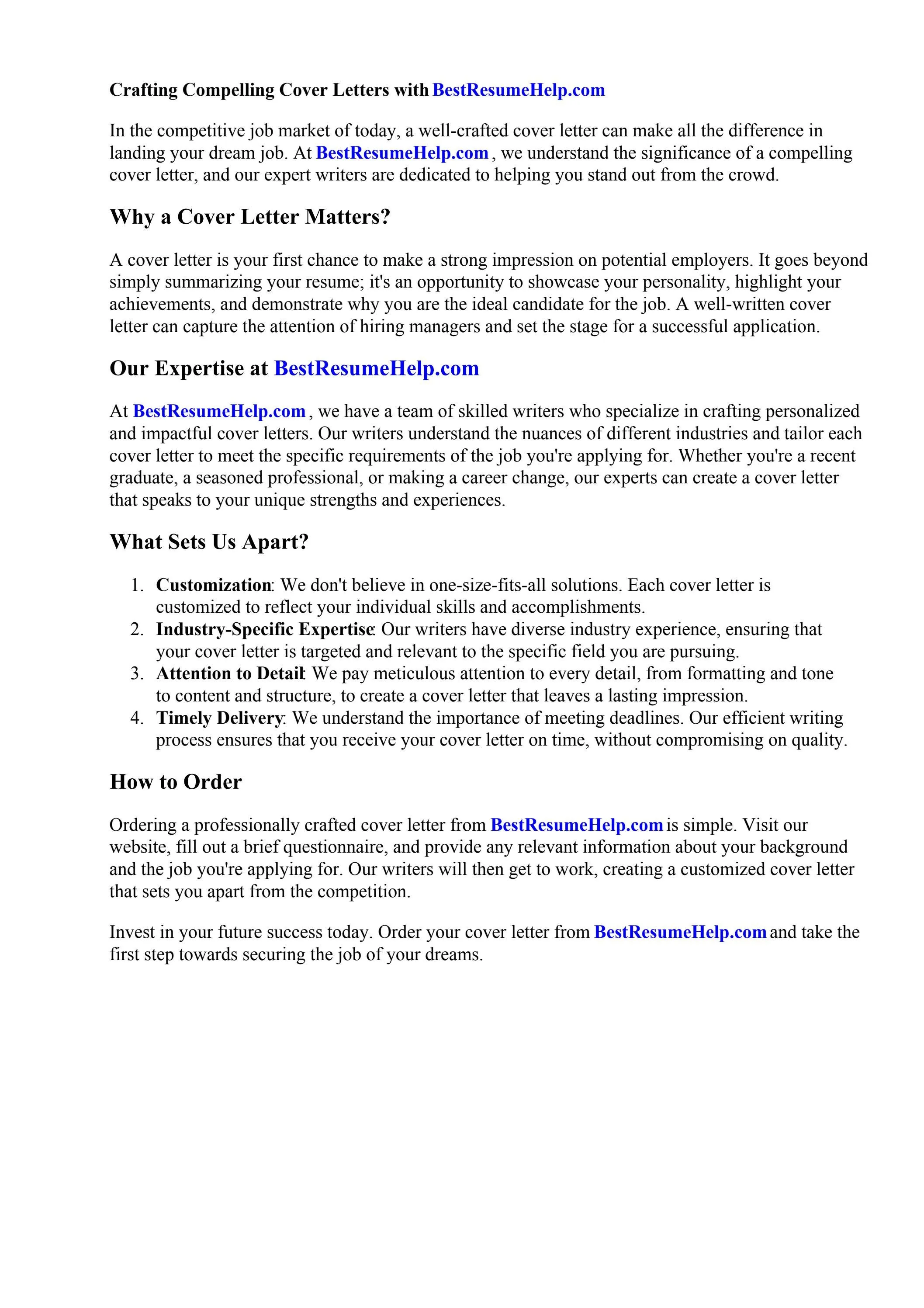Understand the Purpose of a Graduate School Cover Letter
A graduate school cover letter is more than just a formality; it’s your opportunity to introduce yourself and showcase your suitability for a specific program. Unlike the resume or CV, which provides a factual summary of your experiences, the cover letter allows you to explain your motivations, highlight your unique qualifications, and demonstrate your genuine interest in the field. The purpose is to persuade the admissions committee that you are an excellent fit for their program, not just academically, but also in terms of your research interests, career goals, and overall personality. By understanding this purpose, you can tailor your letter to make a compelling case for your admission. The cover letter provides a platform to tell a story, weaving together your past experiences and future aspirations into a cohesive narrative that resonates with the admissions committee. This narrative should clearly articulate why you want to join their specific program and what contributions you hope to make.
Highlight Your Academic Background and Achievements
Begin by succinctly outlining your academic background. Mention your undergraduate institution, your major, and any relevant coursework or specializations. This section isn’t just about listing your degree; it’s about demonstrating the foundational knowledge and skills you’ve acquired. Highlight any outstanding academic achievements, such as a high GPA, Dean’s List recognition, or academic awards. Focus on achievements that are most relevant to the graduate program you’re applying to. If you have a strong performance in specific courses that align with the program’s focus, make sure to mention it. Quantify your achievements whenever possible. For example, state your GPA, the percentage of your class you ranked in, or the specific grade you received in a crucial course. This objective data adds credibility to your claims and provides concrete evidence of your academic capabilities. Your goal is to present a concise, yet compelling summary of your academic journey, emphasizing the skills and knowledge that make you a strong candidate.
Showcase Relevant Skills and Experiences
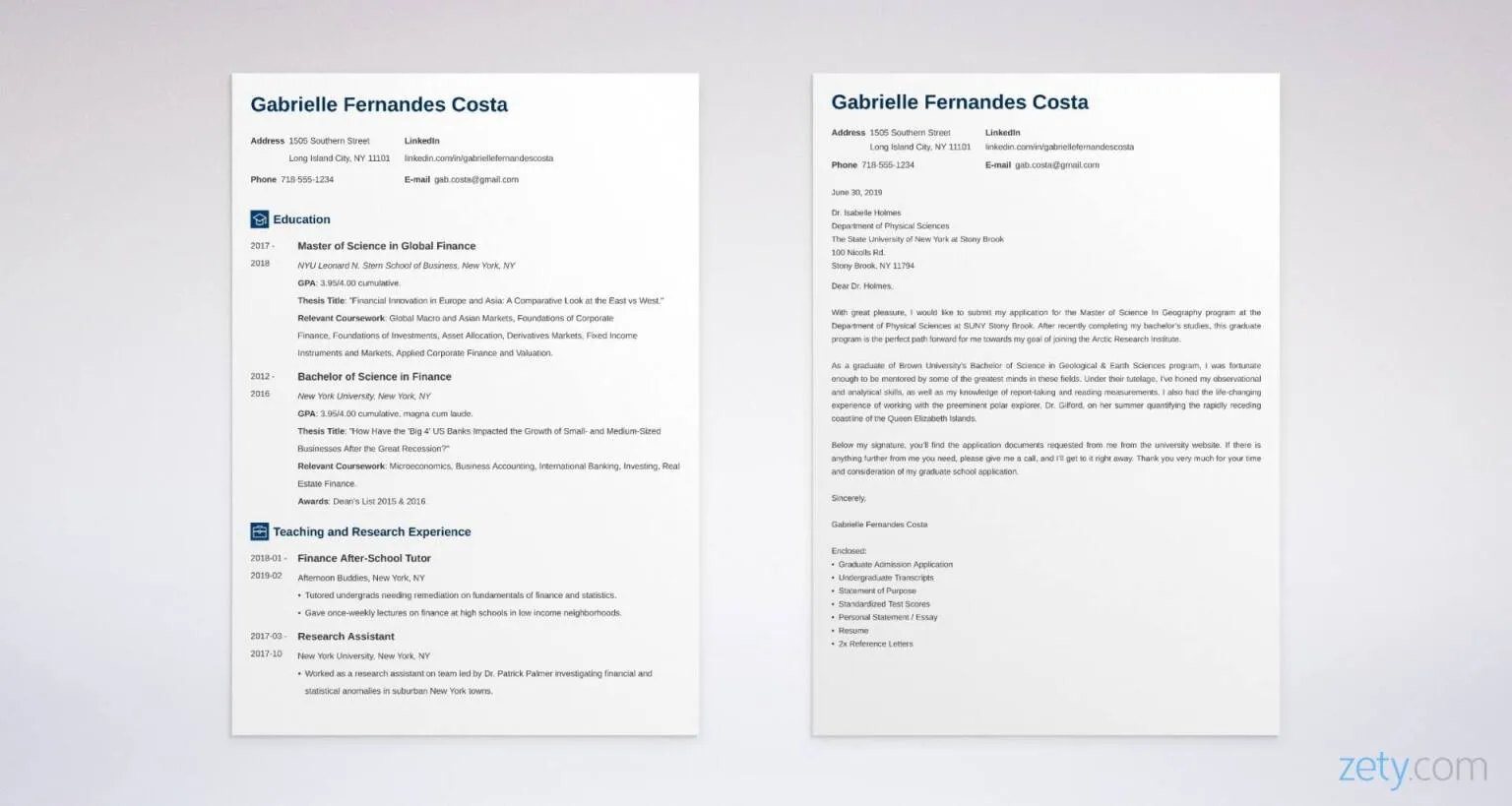
In this section, focus on the skills and experiences that align with the graduate program’s requirements and your intended field of study. Think about the skills and knowledge the program values. These might include specific technical skills, analytical abilities, problem-solving capabilities, or soft skills such as teamwork and communication. Provide concrete examples to support your claims. Describe how you’ve utilized these skills in previous roles, projects, or activities. For instance, if you are applying for a research-oriented program, highlight your experience with data analysis, experimental design, or scientific writing. For management or leadership roles, provide examples of your leadership qualities, such as team management, project coordination, or strategic planning. The goal is to connect your experiences to the requirements of the graduate program, demonstrating how you have developed the skills necessary for success.
Emphasize Research Experience
If you have research experience, this is the perfect opportunity to showcase it. Describe your involvement in research projects, emphasizing your role and responsibilities. Mention the specific techniques and methodologies you used, the results you achieved, and any publications or presentations you were involved in. Highlight any skills you gained during your research, such as data analysis, literature review, and scientific writing. Explain the significance of your research contributions and how they align with the program’s research focus. If you have co-authored publications or presented at conferences, be sure to include them, as this provides concrete evidence of your research capabilities. The goal is to demonstrate your familiarity with the research process and your ability to contribute to the program’s research endeavors.
Demonstrate Your Passion for the Field
Express your genuine interest in the field and explain why you are drawn to this area of study. Your cover letter should convey your enthusiasm for the subject. You can talk about what sparked your interest in the field and what motivates you to pursue advanced studies. Reflect on the specific aspects of the field that excite you and explain how you hope to contribute to it. Discuss any relevant experiences or coursework that have deepened your passion. This section should allow the admissions committee to get a sense of your personality and your long-term goals. It demonstrates your commitment and helps to differentiate you from other applicants. The most compelling cover letters often include specific anecdotes or stories that illustrate this passion and make your application more memorable. By expressing your passion, you show that you’re driven to pursue your degree, which is a critical factor in graduate school success.
Explain Your Reasons for Applying
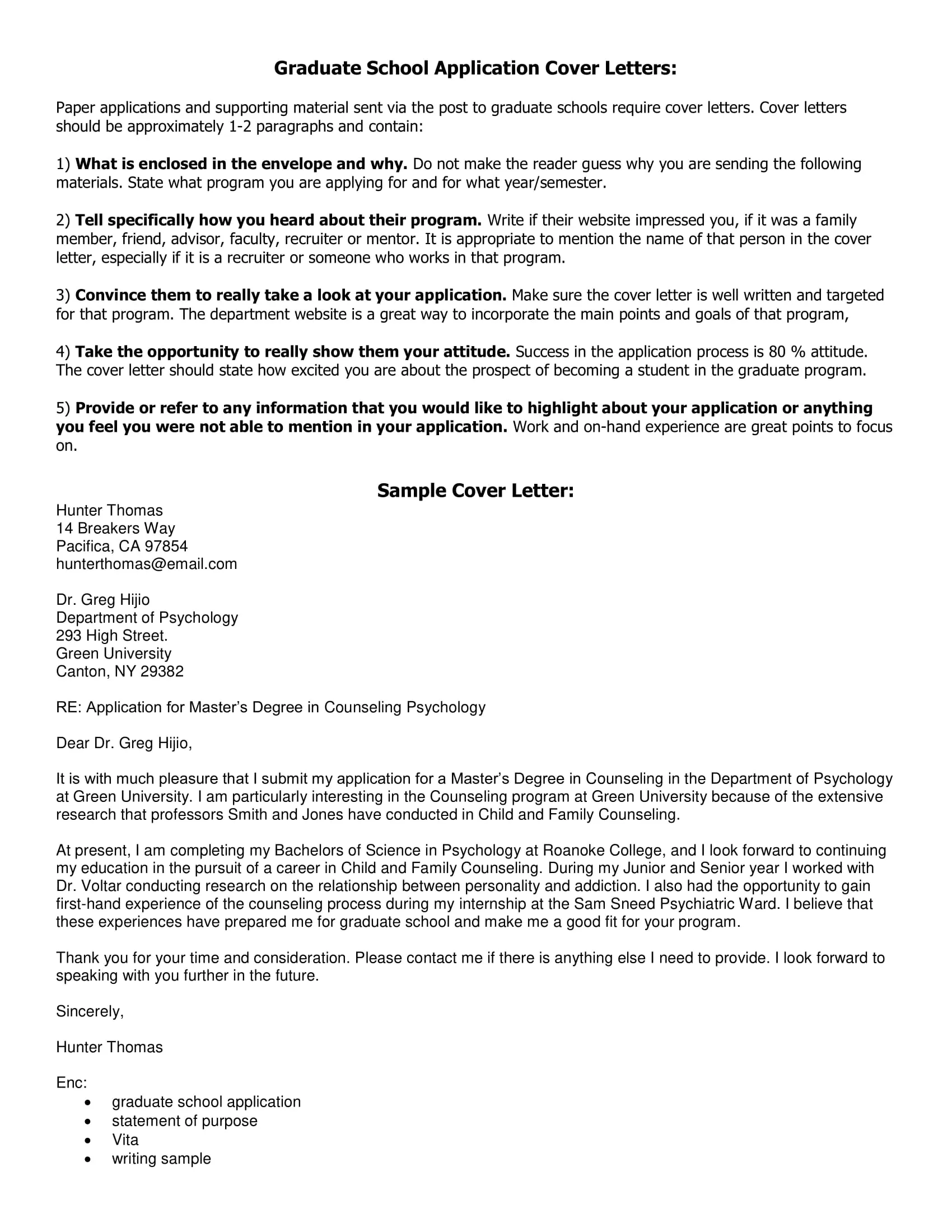
Clearly articulate your specific reasons for applying to this particular graduate program. Don’t simply state that you want to attend graduate school in general; explain why you have chosen this specific program and institution. Research the program and the faculty and identify what makes this program unique. Mention specific courses, research areas, or faculty members that appeal to you. Discuss how this program aligns with your academic and career goals. This section should demonstrate that you’ve done your homework and have a clear understanding of what the program offers. Show that you have chosen this program deliberately. By doing so, you show that you’re not just applying to any program but that you genuinely believe this one is the right fit for you and your ambitions. This level of specificity demonstrates your sincerity and commitment, increasing your chances of acceptance.
Connect Your Goals to the Program
Explain how your long-term career aspirations align with the program’s offerings. Outline your career goals and discuss how this graduate program will help you achieve them. Describe the specific skills, knowledge, and experiences you hope to gain and explain how these will contribute to your professional success. Connect your goals to the program’s resources, such as research opportunities, faculty expertise, or specialized courses. Indicate your desired career path, such as research, academia, industry, or government, and explain how this program will enable you to pursue that path. This section will demonstrate your forward-thinking nature and provide the admissions committee with a clear understanding of your aspirations. Showing a clear path from the program to your career goals underscores your commitment to making a tangible contribution to your field.
Mention Specific Faculty or Research
Demonstrate that you have researched the program by mentioning specific faculty members whose work interests you. Name professors whose research aligns with your own interests and explain why you are excited about the prospect of working with them. If you have a specific research interest, mention how the program’s resources and faculty expertise can help you pursue it. This section demonstrates your initiative, genuine interest, and your understanding of the program. Tailoring your letter to demonstrate genuine interest in specific research projects or professors significantly boosts your application. This personalized touch can make you stand out. It shows the admissions committee that you’ve invested time and effort into understanding the program and how your interests align. It also provides a concrete example of how the program will benefit you and your aspirations.
Perfect the Structure and Format
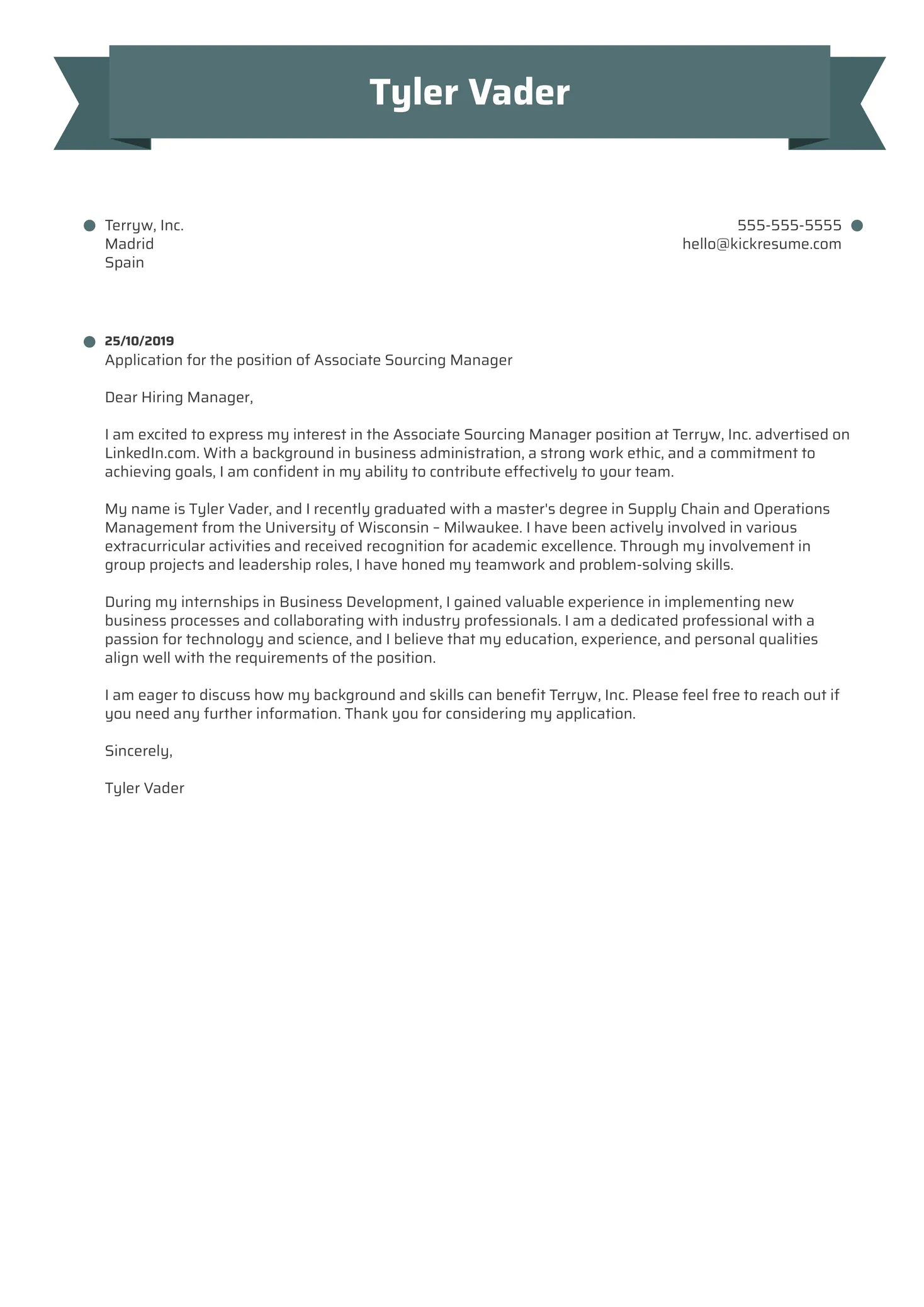
A well-structured and formatted cover letter is essential for making a positive first impression. Follow standard business letter format, including your contact information, the date, and the admissions committee’s contact information (if available). Keep your letter concise and focused. Aim for a length of one page. Use clear and concise language, avoiding jargon or overly complex sentence structures. Choose a professional font, such as Times New Roman or Arial, and use a font size that is easy to read (e.g., 11 or 12 points). Ensure there is a consistent format throughout the document, including consistent use of margins, spacing, and headings. A well-formatted cover letter reflects your attention to detail and commitment to professionalism. It enhances readability and helps the admissions committee quickly grasp the key points. Remember that the visual presentation of your letter is just as important as the content.
Write a Compelling Introduction
The introduction is your opportunity to immediately capture the reader’s attention. Start with a strong opening statement that clearly states your purpose for writing, such as your intention to apply for admission to the graduate program. Briefly mention your key qualifications and experience. Avoid generic or cliché openings. Instead, try a more personalized approach. You might mention how you discovered the program or what sparked your interest in the field. The introduction should be concise and provide an overview of what you plan to cover in the letter. Make it clear why you are a strong candidate. Consider including a brief statement about your career goals. The introduction should motivate the reader to continue reading. It should set the tone for the rest of your letter. A strong start sets the stage for a positive impression.
Develop Strong Body Paragraphs
Each body paragraph should focus on a specific aspect of your qualifications and experience. Use clear and organized structure, using topic sentences to introduce each paragraph’s main idea. Support your claims with concrete examples. Provide specific details about your experiences, skills, and accomplishments. Use action verbs to describe your achievements. Highlight the impact of your contributions. For example, describe how you solved a problem, improved a process, or achieved a particular outcome. Use data and evidence to support your claims. Avoid vague or general statements. Ensure each paragraph flows logically and connects to the overall narrative of your letter. The body paragraphs should explain what the admissions committee wants to know. The goal is to offer solid information to help them evaluate your candidacy. Each paragraph should build on the previous one, creating a compelling case for your acceptance.
Craft a Powerful Conclusion
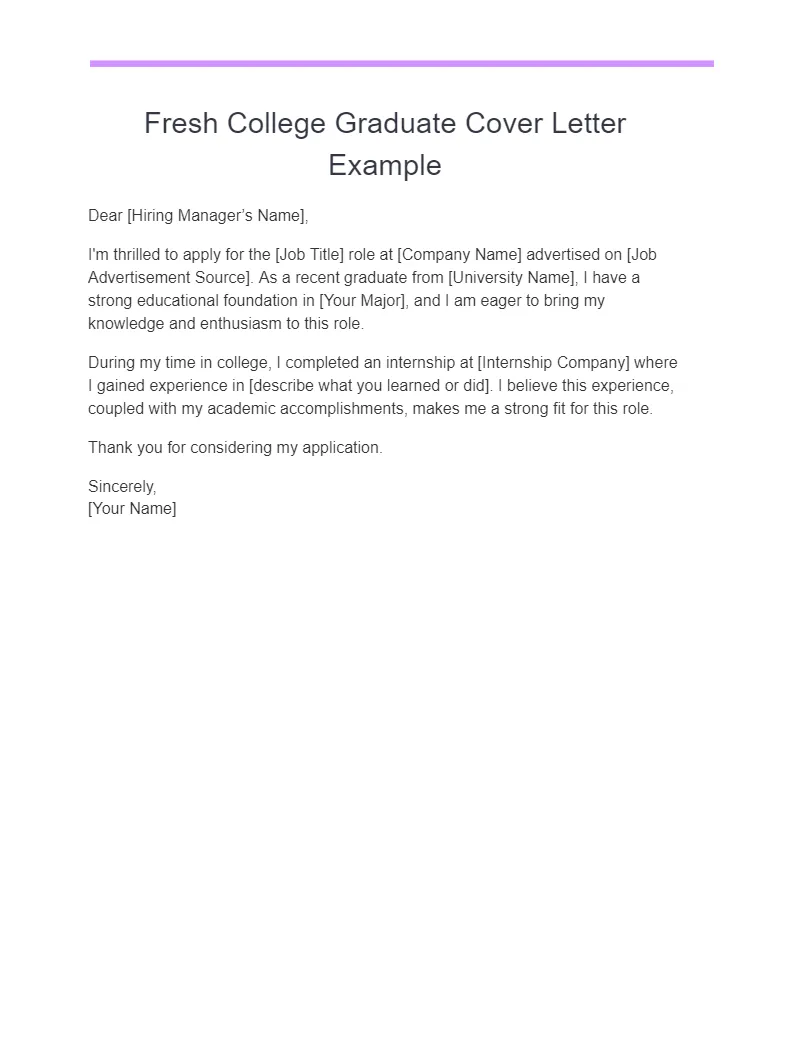
Your conclusion should summarize your key qualifications and reiterate your interest in the program. Restate your enthusiasm for the opportunity. Briefly restate your career goals and how the program will help you achieve them. Express your gratitude for the committee’s time and consideration. If applicable, mention any specific actions you are taking, such as attaching your resume or CV. Close with a professional and courteous closing, such as “Sincerely” or “Respectfully.” Thank the reader for their time. Your conclusion should leave a lasting positive impression. The goal is to reinforce your key strengths and reiterate your desire to be admitted to the program. The conclusion should be as memorable and impactful as your introduction. It’s your final opportunity to showcase your commitment and enthusiasm.
Proofread and Edit Your Cover Letter
Proofreading and editing are crucial steps in the writing process. They are necessary to ensure your letter is free of errors and presents you in the best possible light. Take the time to thoroughly review your cover letter for any errors in grammar, spelling, punctuation, and sentence structure. Errors undermine your credibility and can distract the reader from your message. Read your letter aloud to catch any awkward phrasing or unclear sentences. Use spell-check and grammar-check tools, but don’t rely on them entirely. These tools can miss errors, so it’s essential to review the letter carefully yourself. Consider seeking feedback from trusted sources. Have a professor, career counselor, or friend review your letter. Fresh eyes can often catch mistakes that you might miss.
Check for Grammar and Spelling Errors
Carefully check your cover letter for any grammatical errors, such as subject-verb agreement issues, incorrect tense usage, and misplaced modifiers. Run a spell-check to identify and correct spelling errors. Pay close attention to commonly confused words like “there,” “their,” and “they’re,” as well as “your” and “you’re.” Ensure correct punctuation usage, including commas, semicolons, and apostrophes. Proofread for typos. A well-written cover letter requires meticulous attention to detail. The absence of these errors is a signal to the admissions committee that you are detail-oriented. Errors, on the other hand, reflect negatively on your writing skills and professionalism. This indicates a lack of care and attention, which could jeopardize your application.
Ensure a Professional Tone and Style

Maintain a professional tone throughout your cover letter. Use formal language and avoid slang, colloquialisms, and overly casual expressions. Ensure the tone of your letter is appropriate for the academic context. Avoid informal language or emoticons. Proofread for any potential misinterpretations. Make sure your writing is clear, concise, and easy to understand. Choose your words carefully. It is essential to maintain a professional tone throughout your cover letter. Your writing style should reflect your academic seriousness. Review the style to ensure that it aligns with academic expectations. The goal is to present yourself as a credible and capable candidate. This will encourage the admissions committee to see you as an appropriate candidate for acceptance into the program.
Get Feedback and Revise
Seek feedback from trusted sources, such as professors, advisors, or career counselors. Ask them to review your cover letter and provide constructive criticism. Be open to receiving and incorporating their feedback. Ask the reviewers to assess the clarity of your writing, the strength of your arguments, and the overall effectiveness of your letter. Be ready to make revisions based on the feedback you receive. Revise your cover letter multiple times until you are completely satisfied with its content and presentation. Do not be afraid to solicit multiple opinions to ensure that your cover letter is the best representation of yourself. This collaborative approach often helps you to refine your message and improve the overall quality of your application. A polished cover letter is critical for a successful graduate school application.
